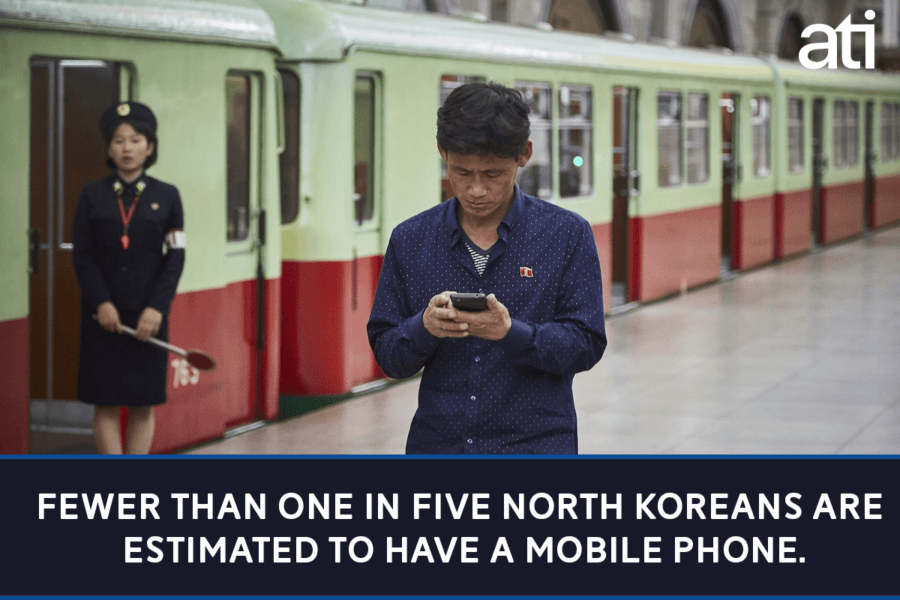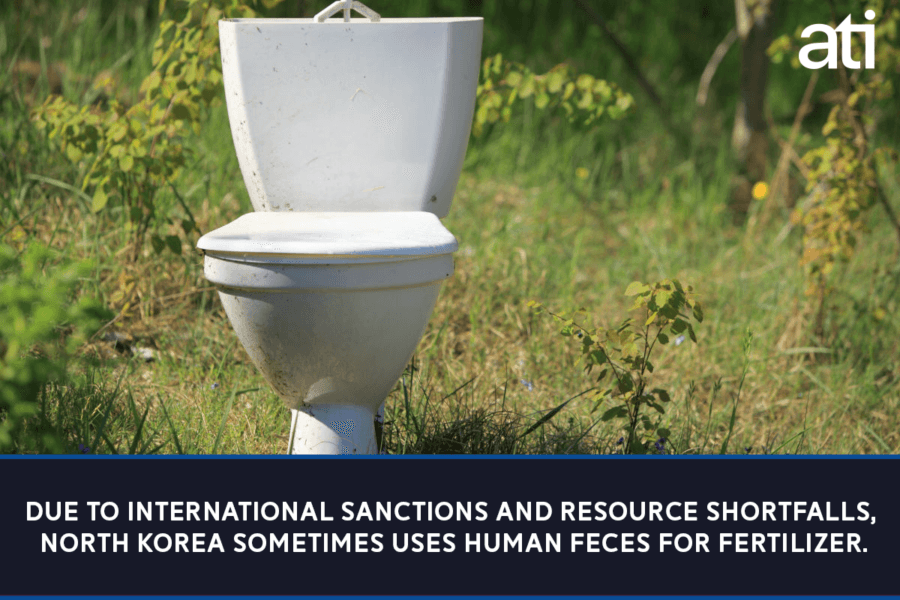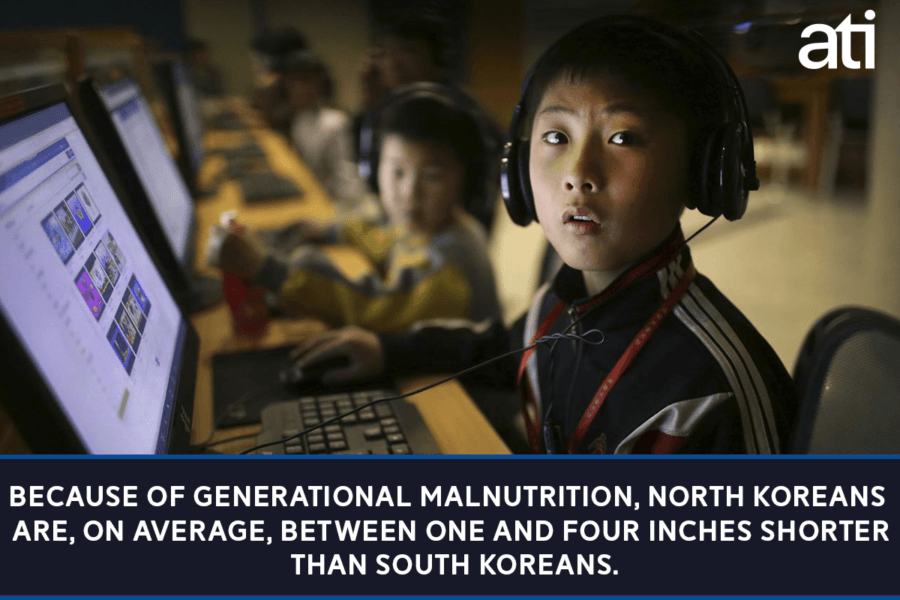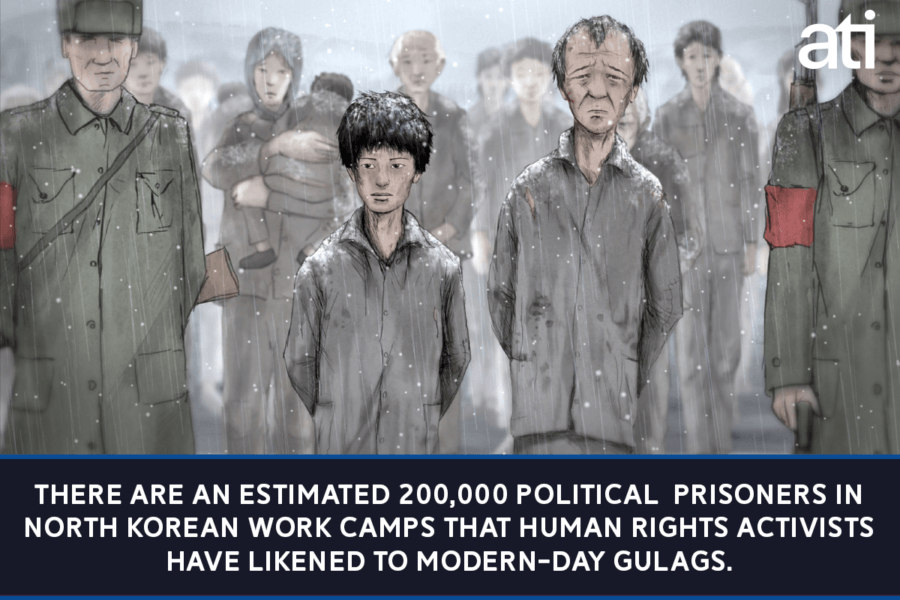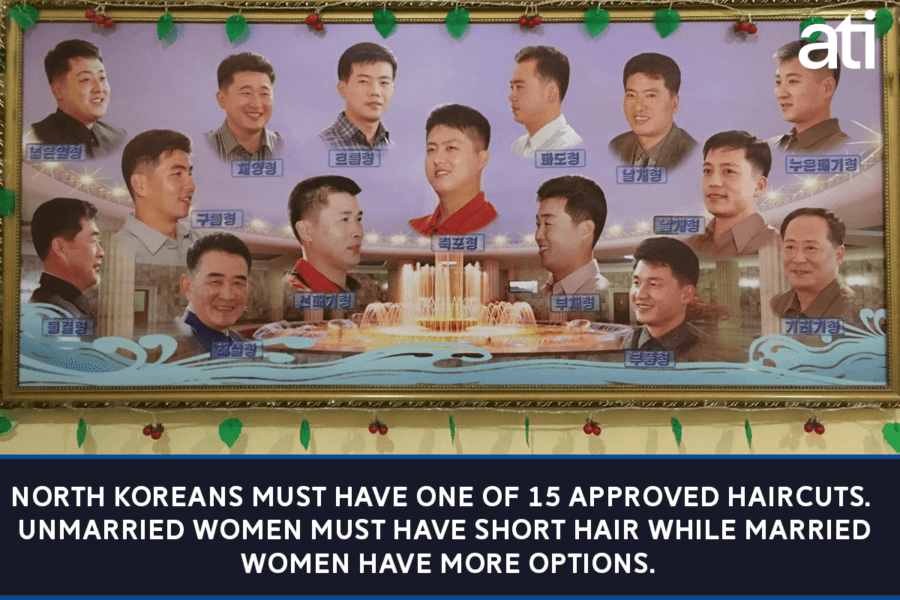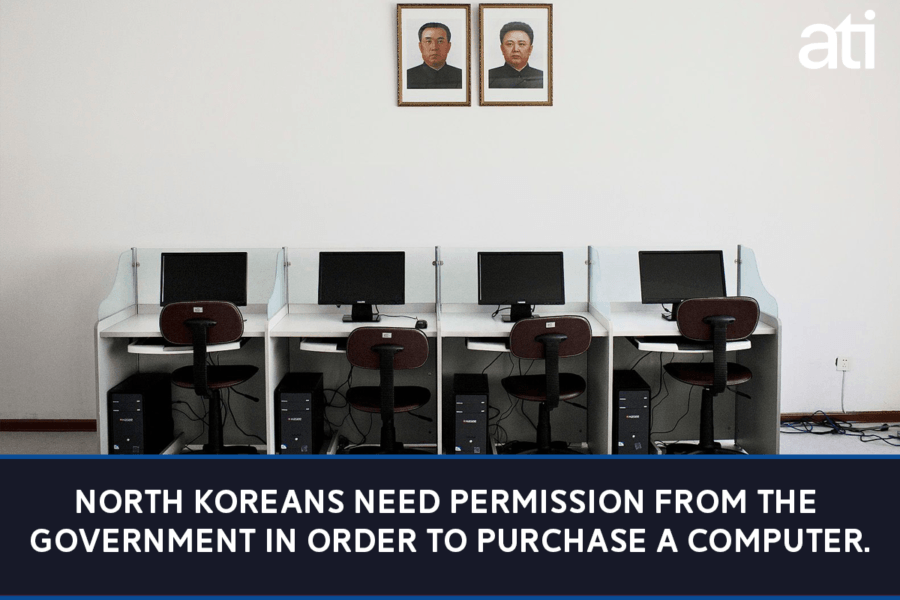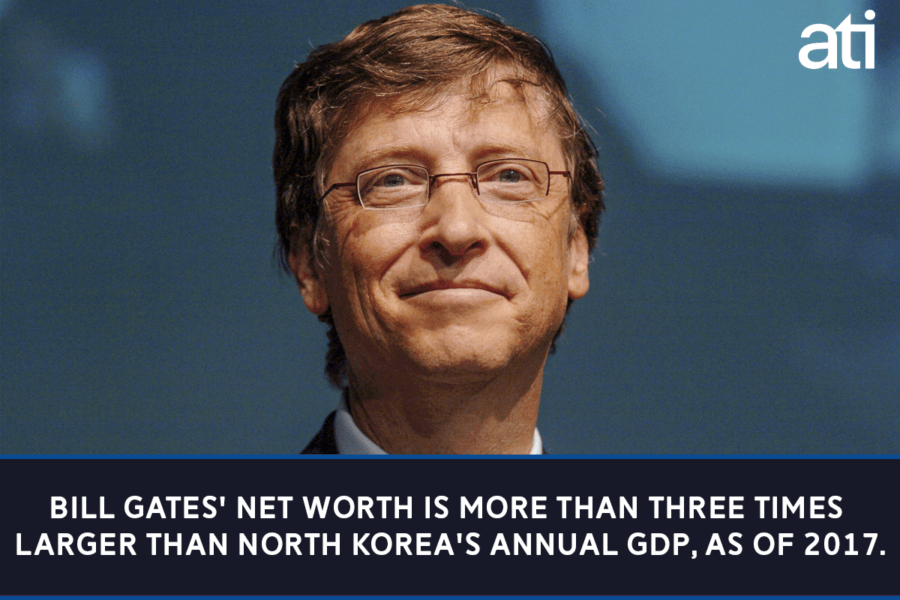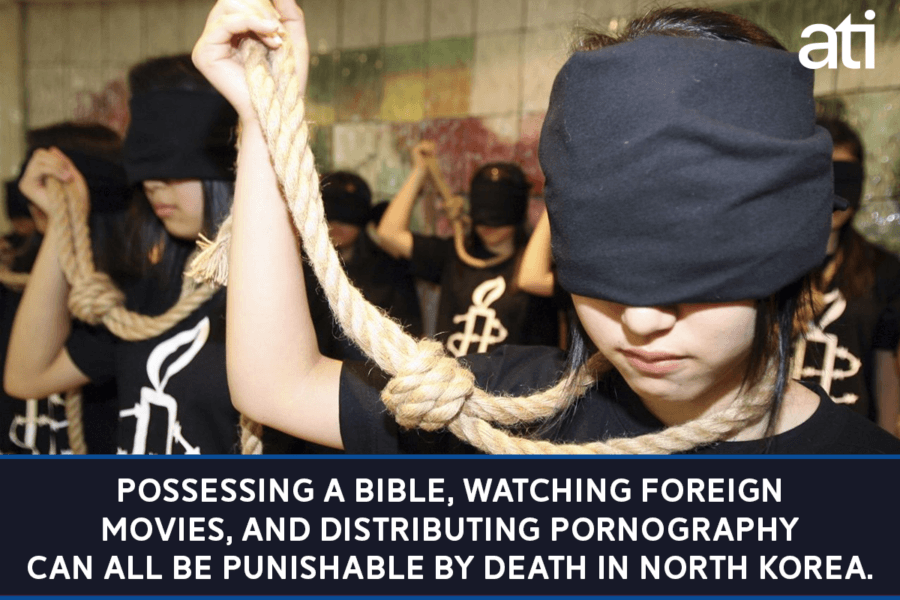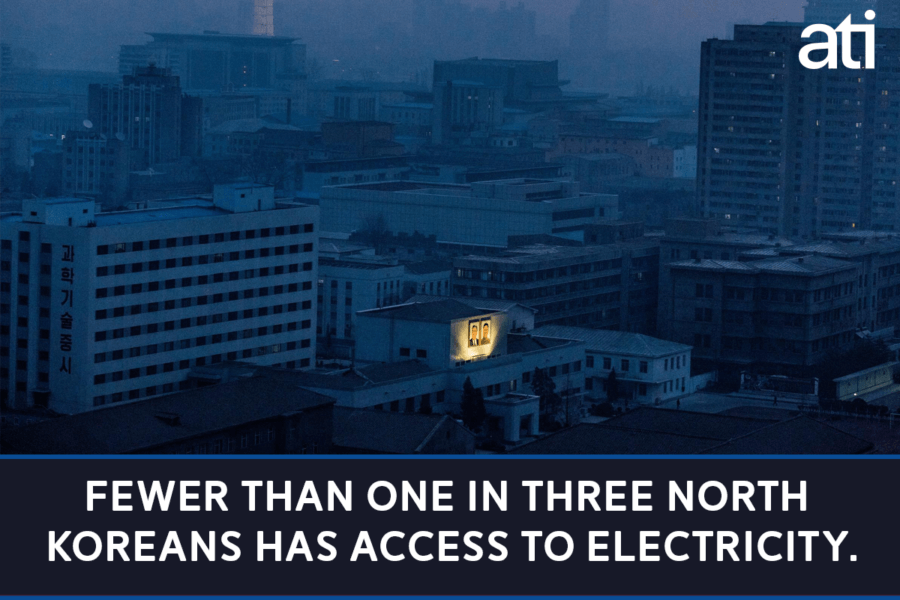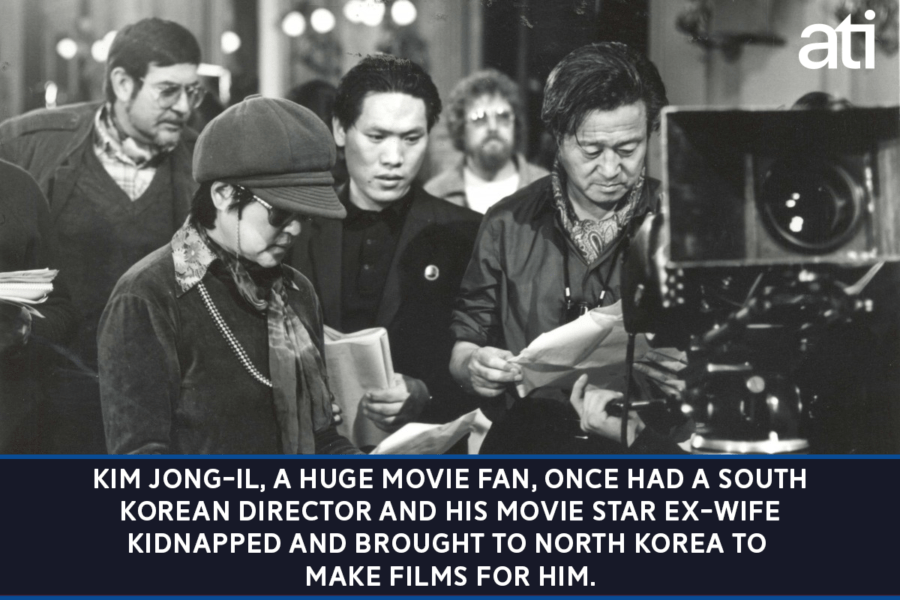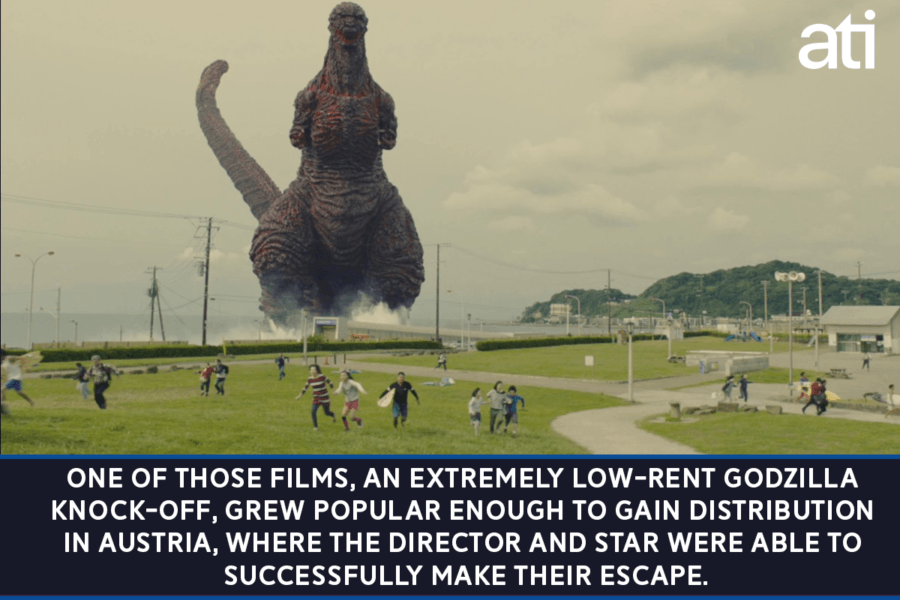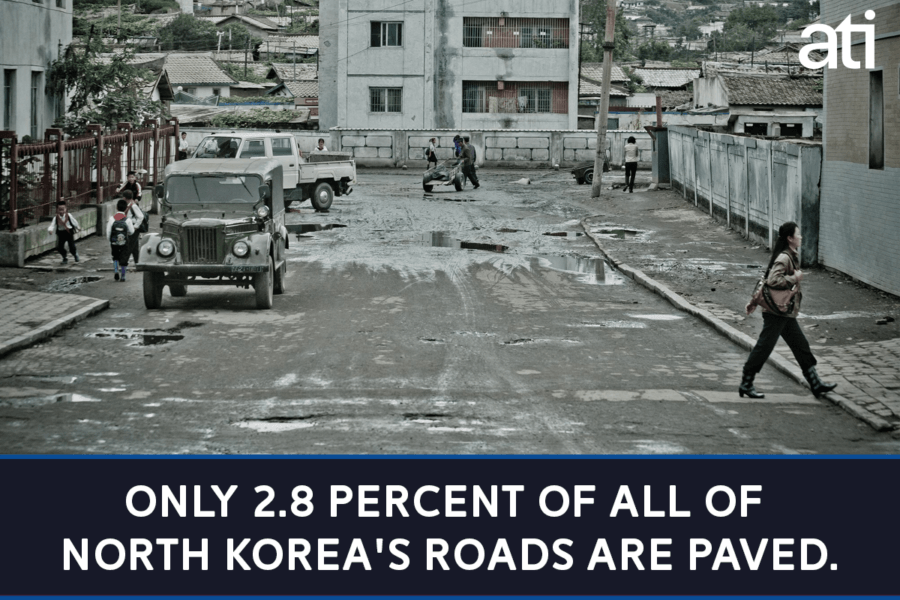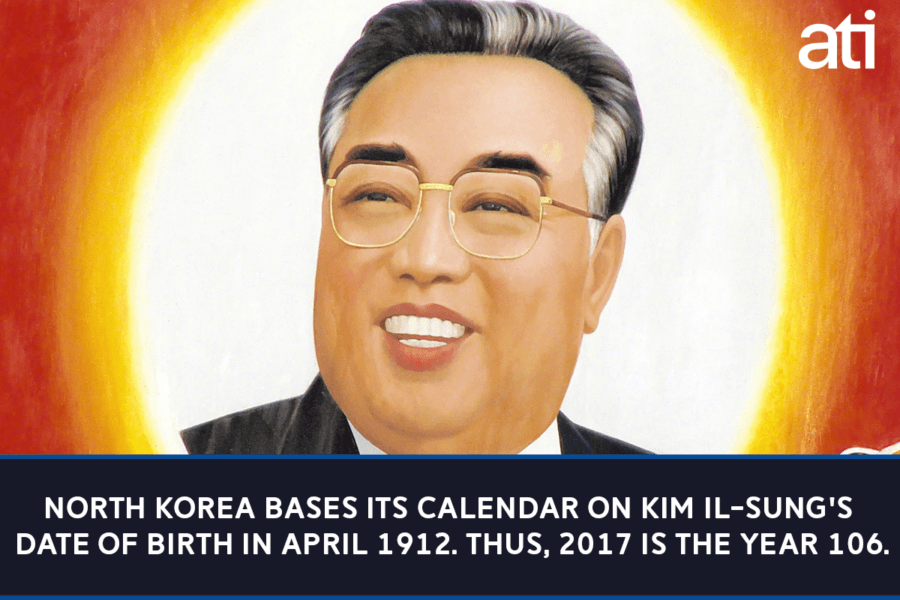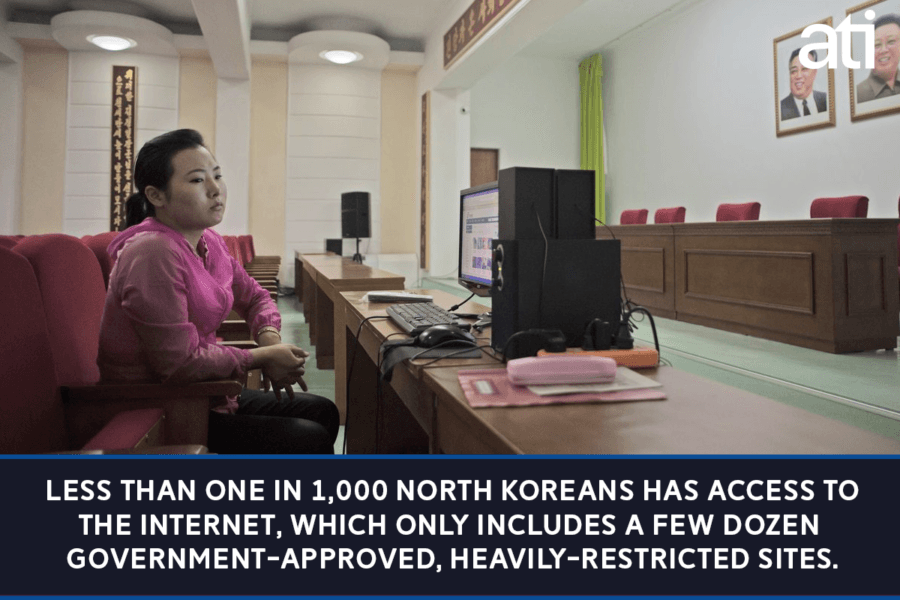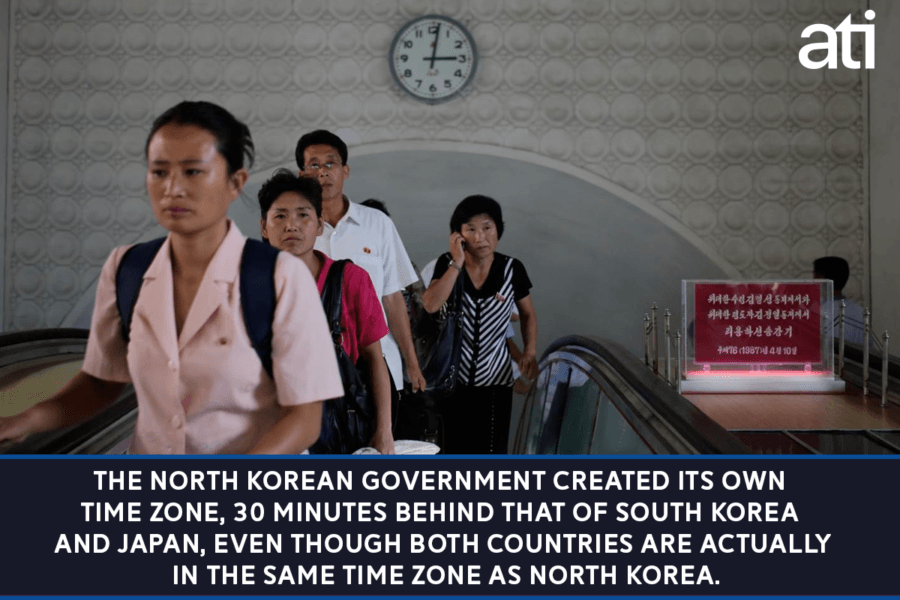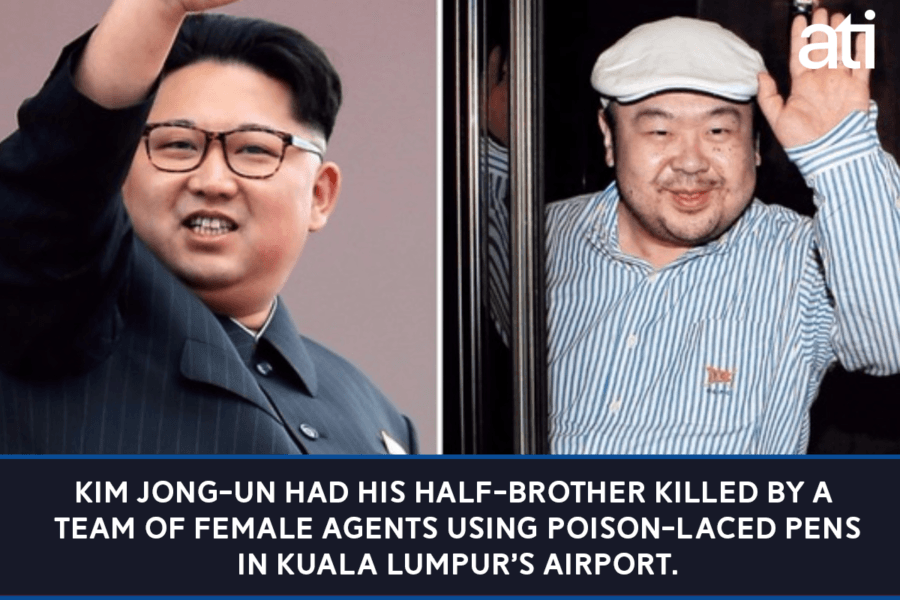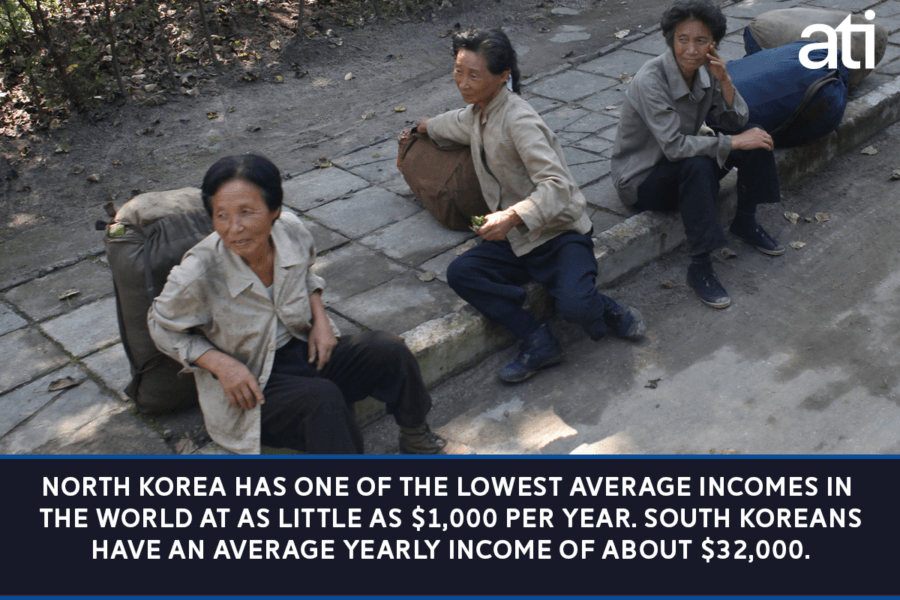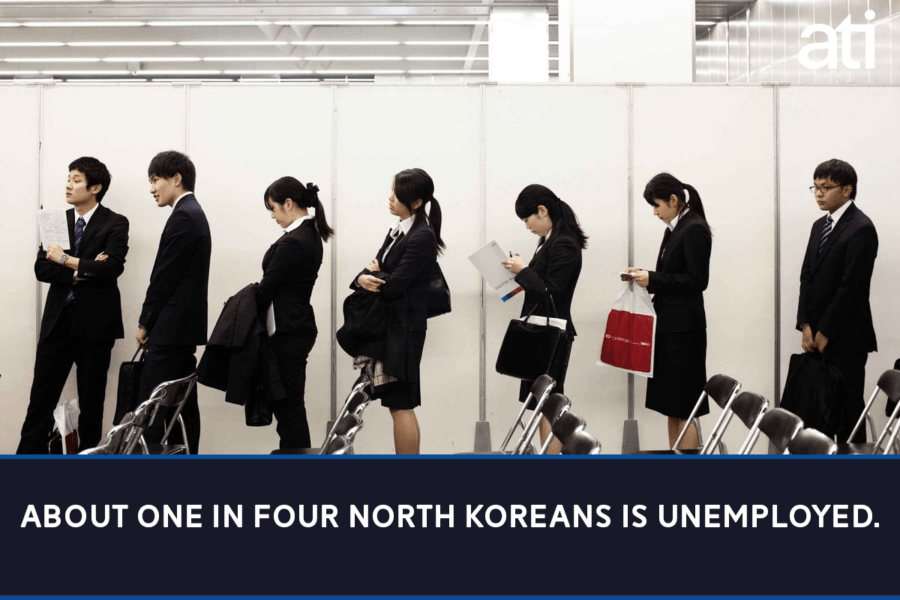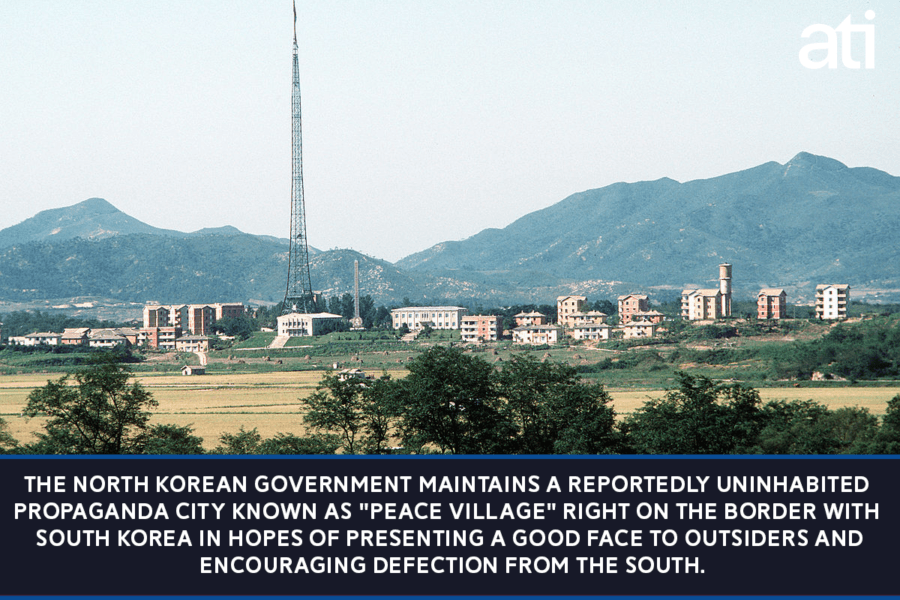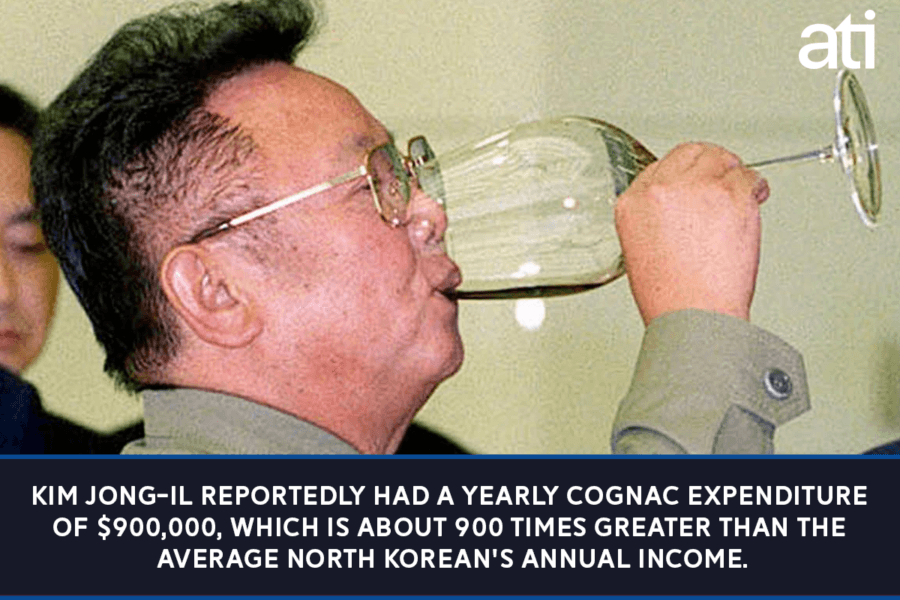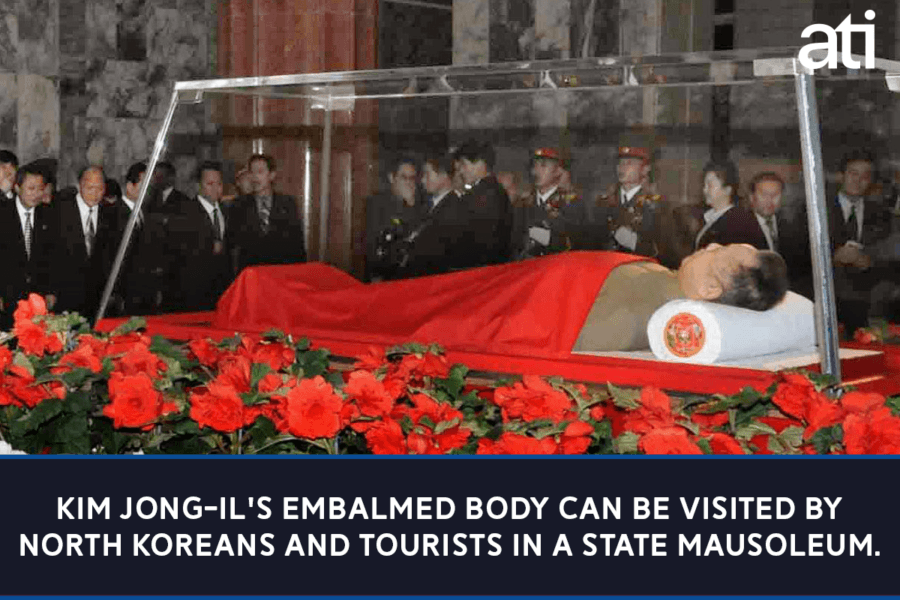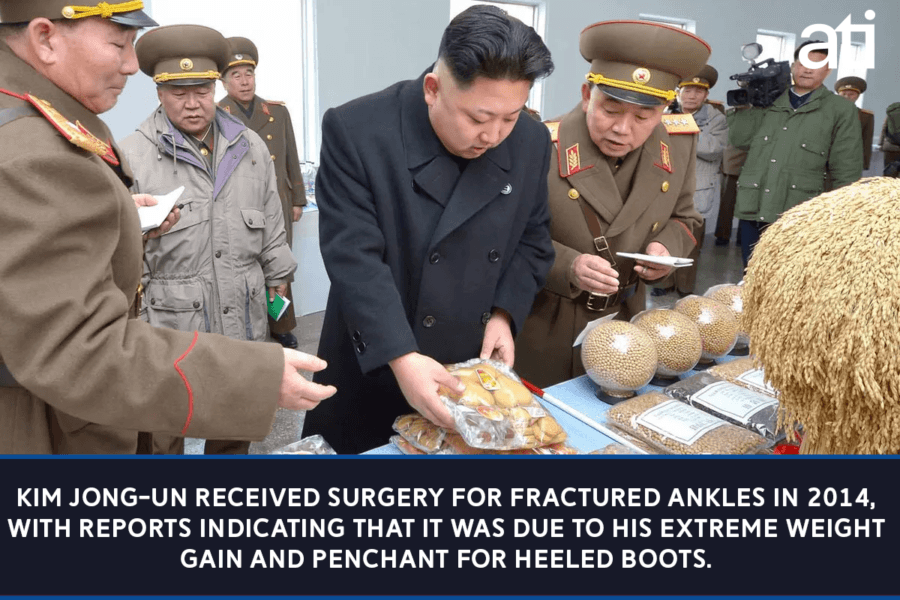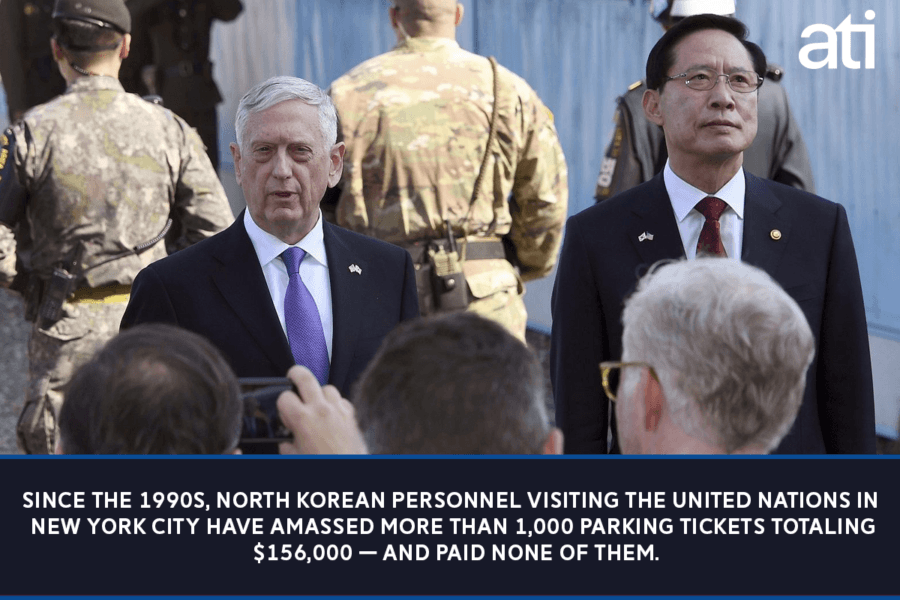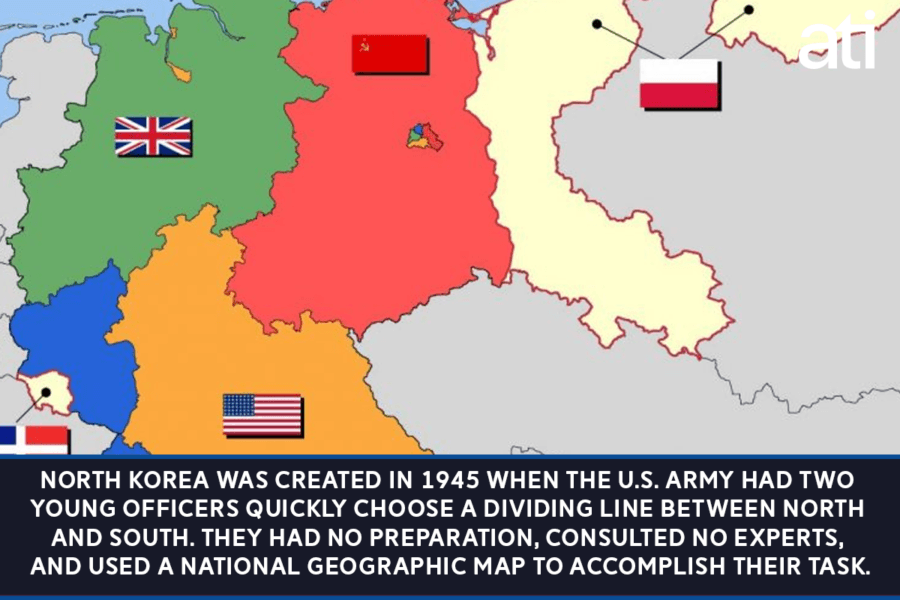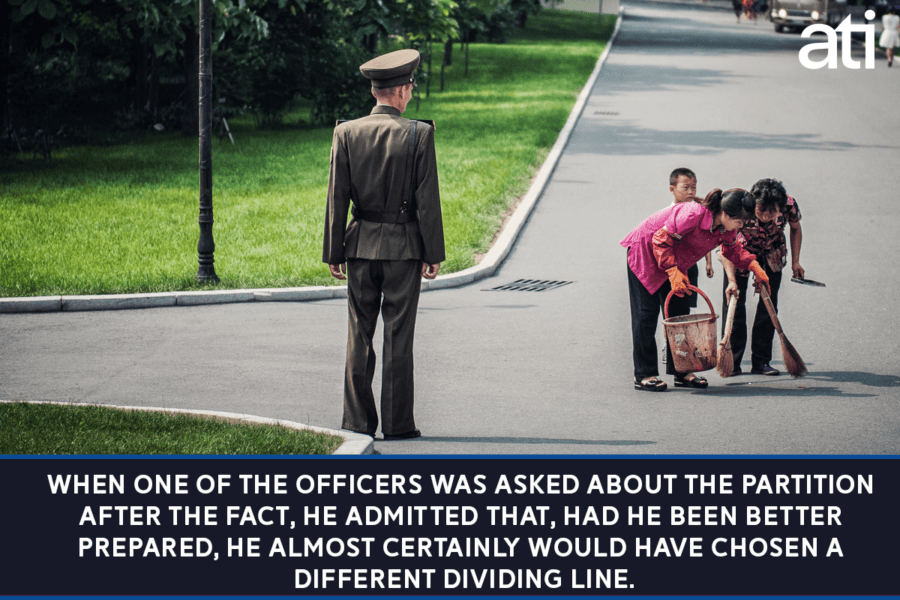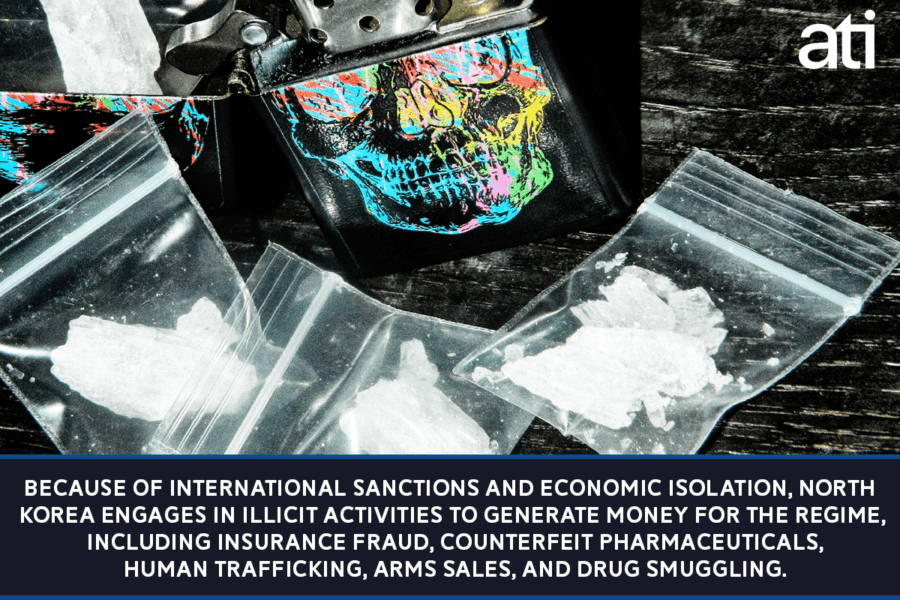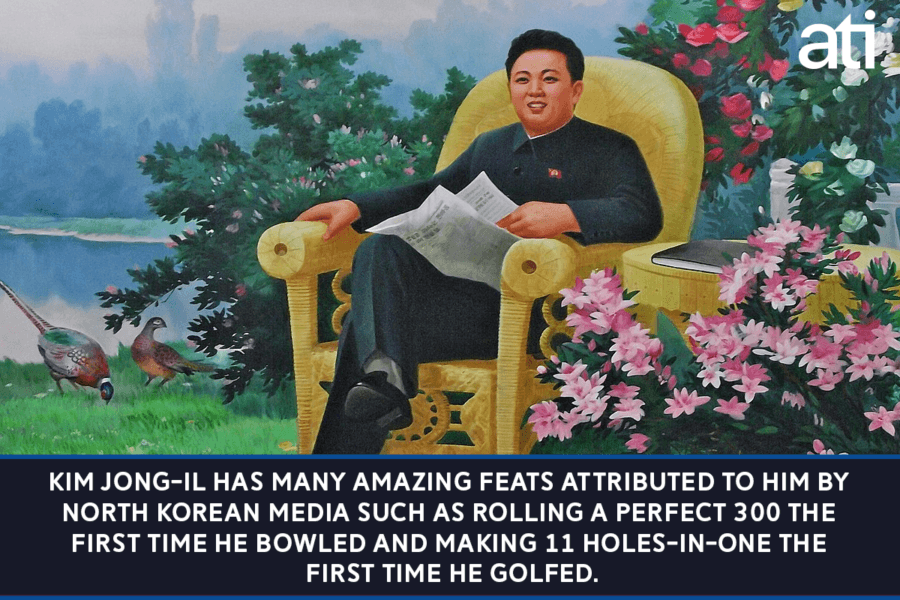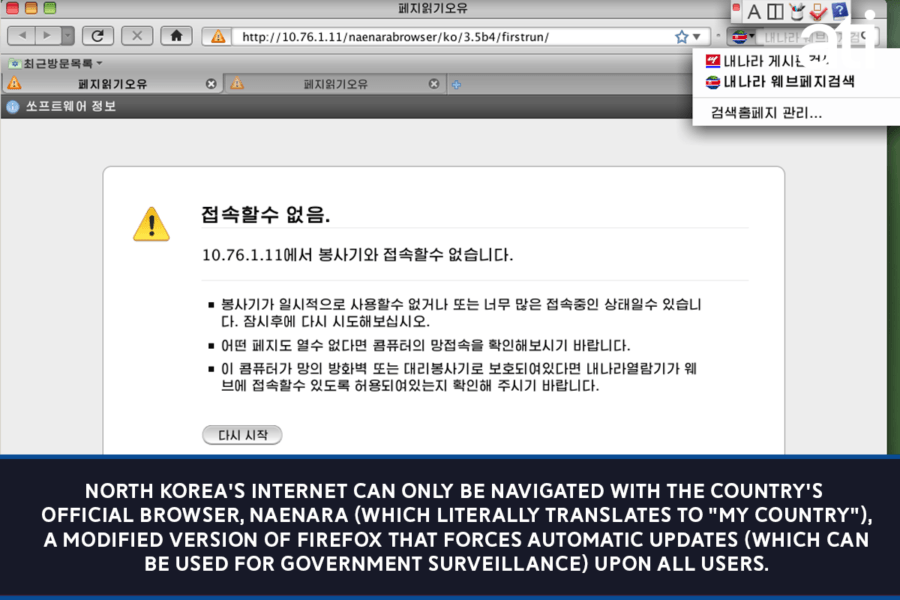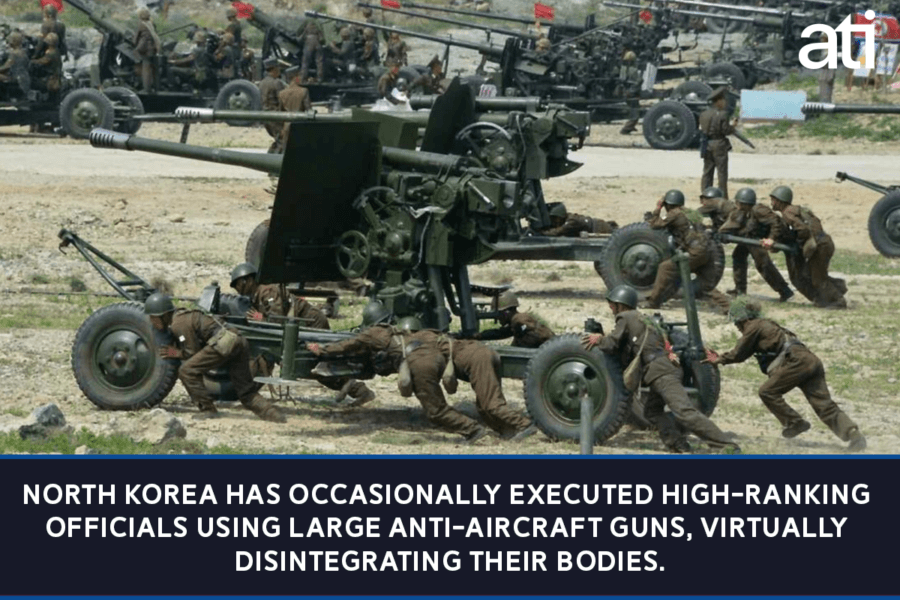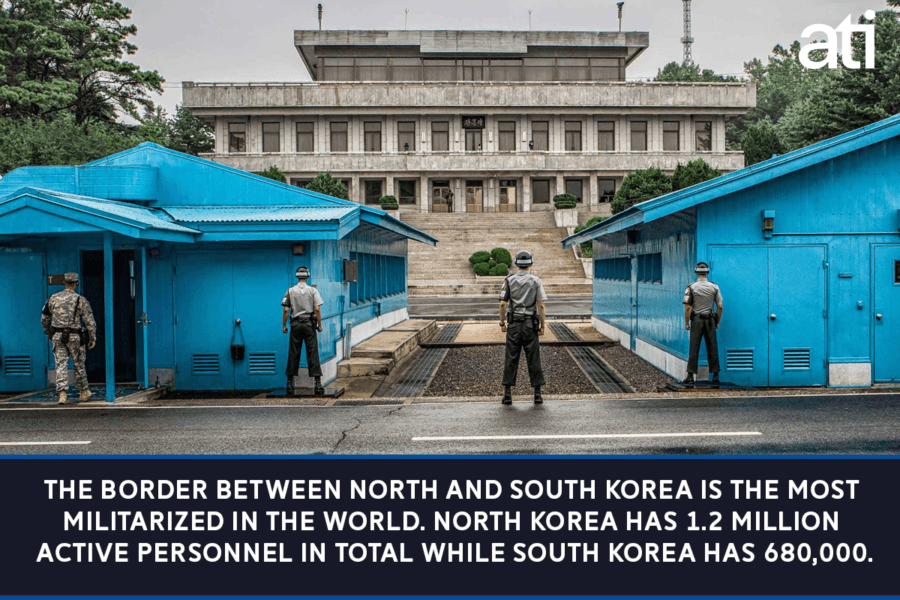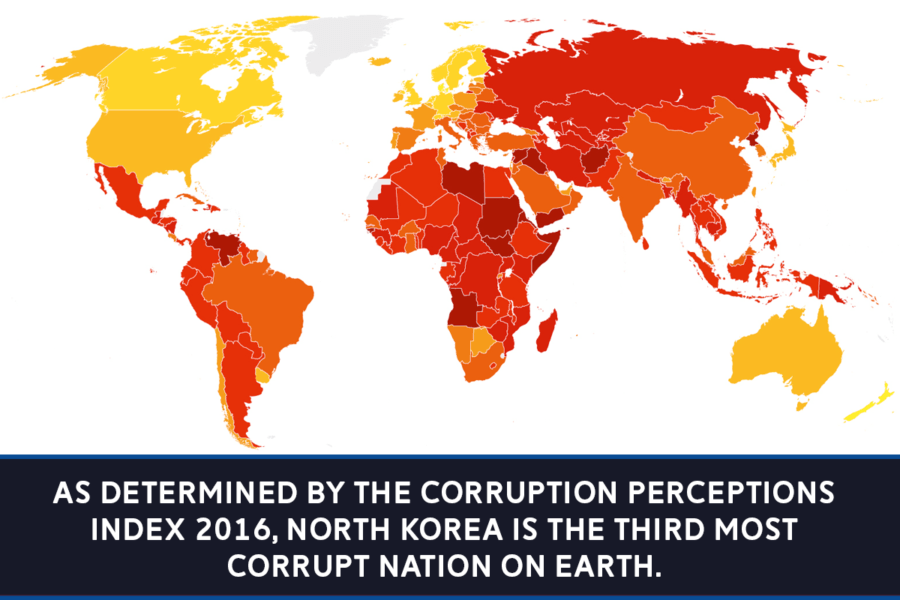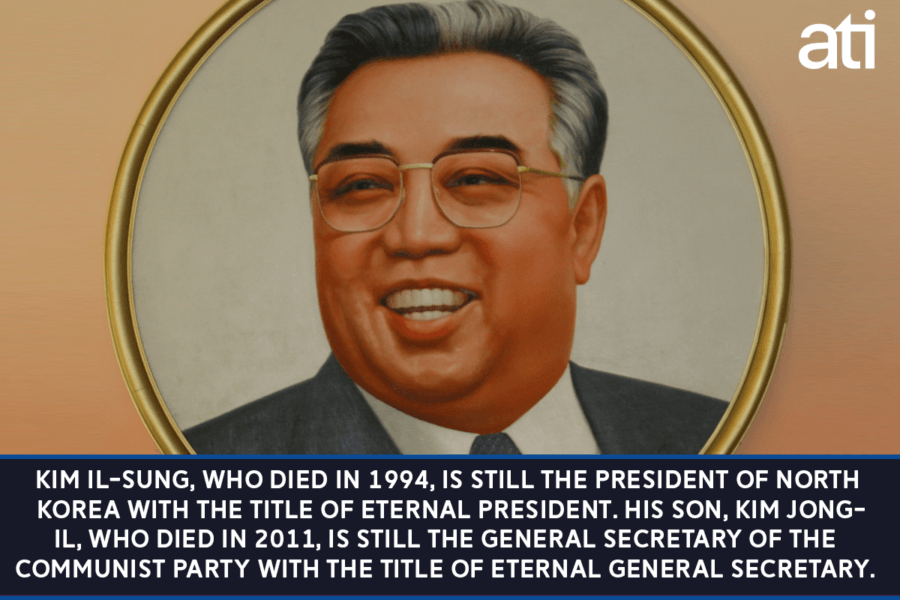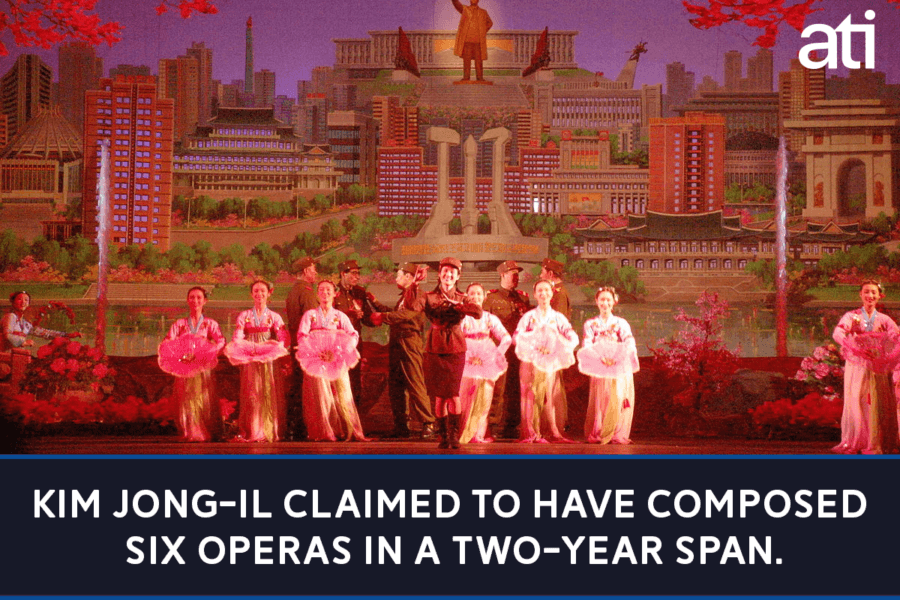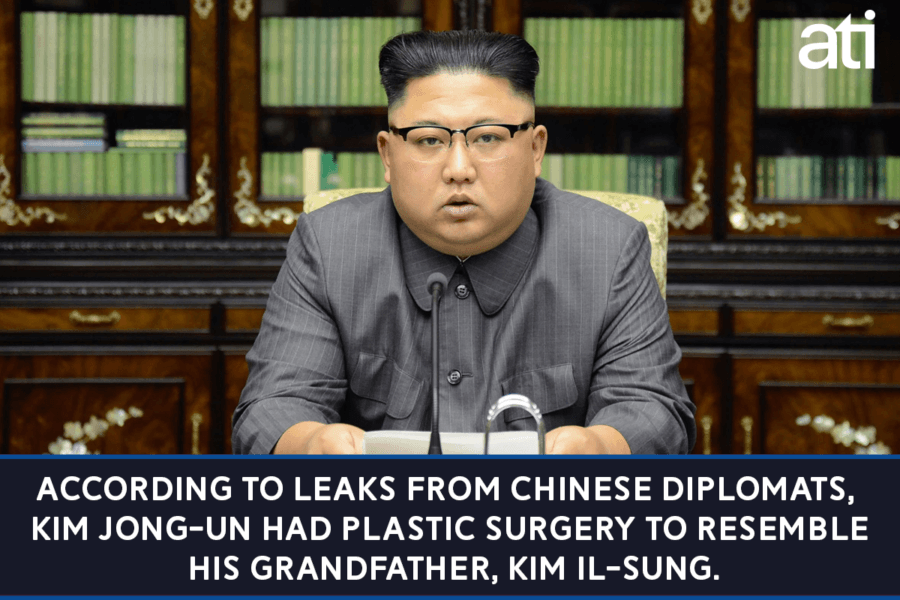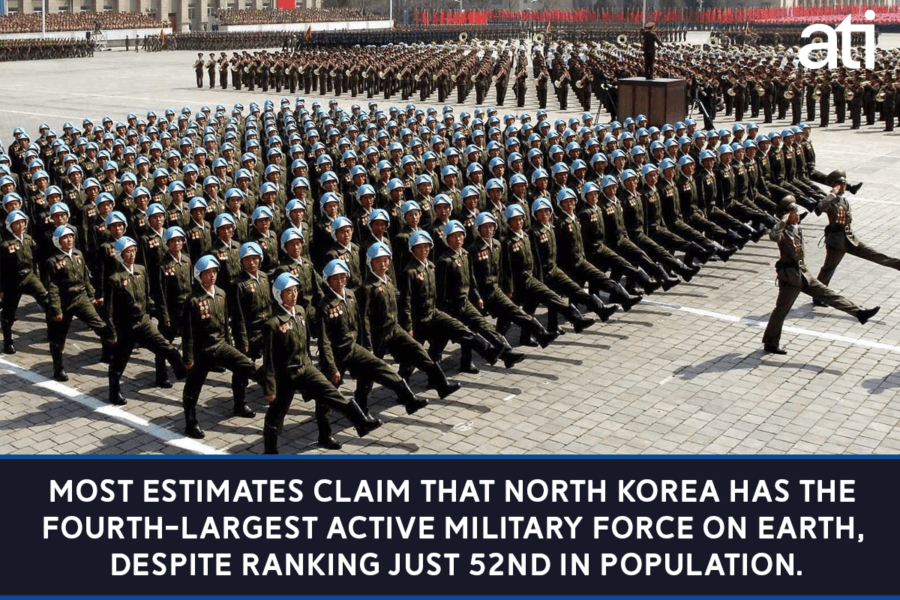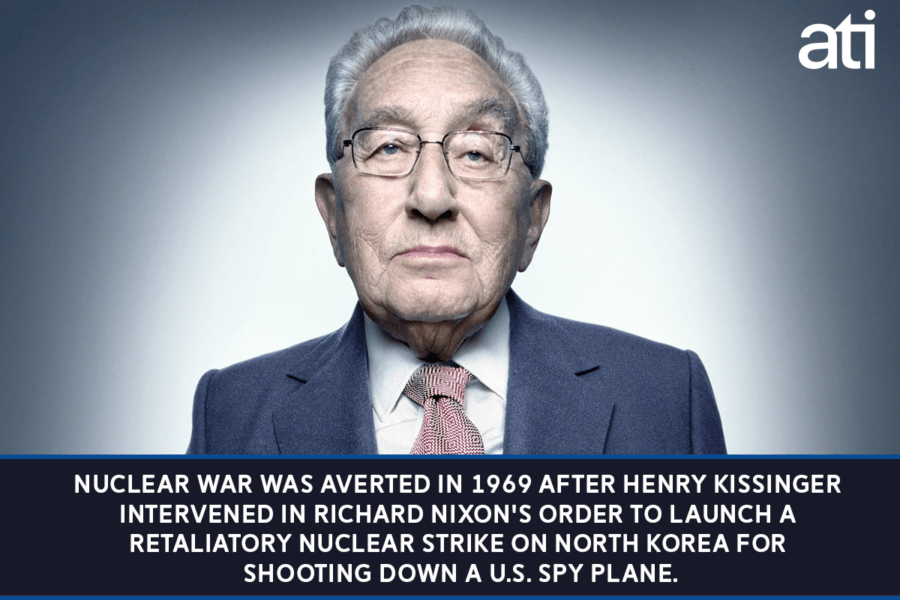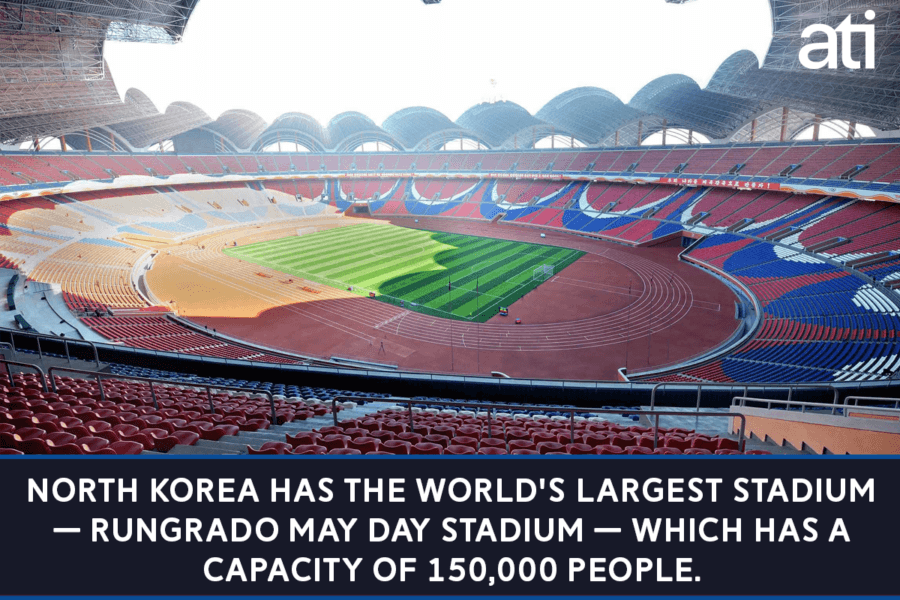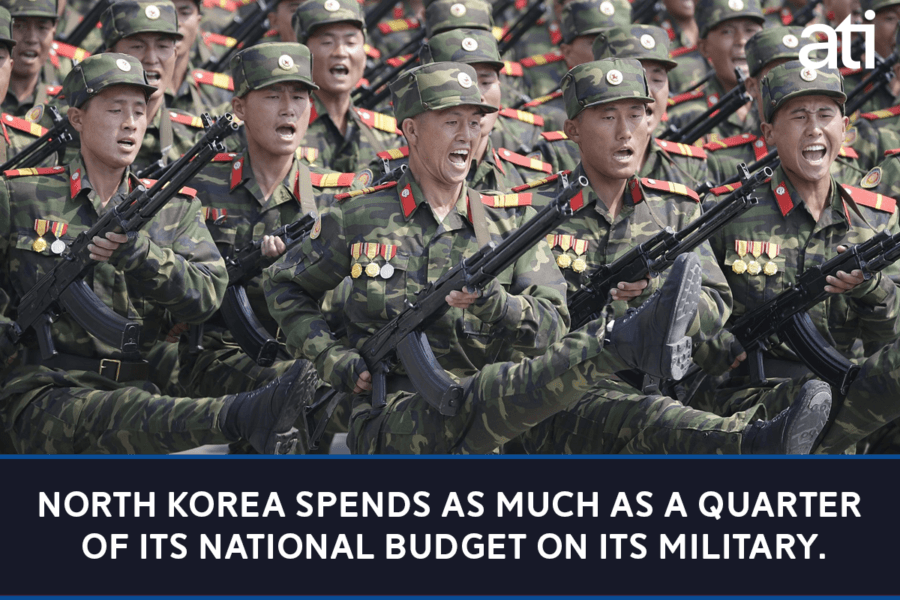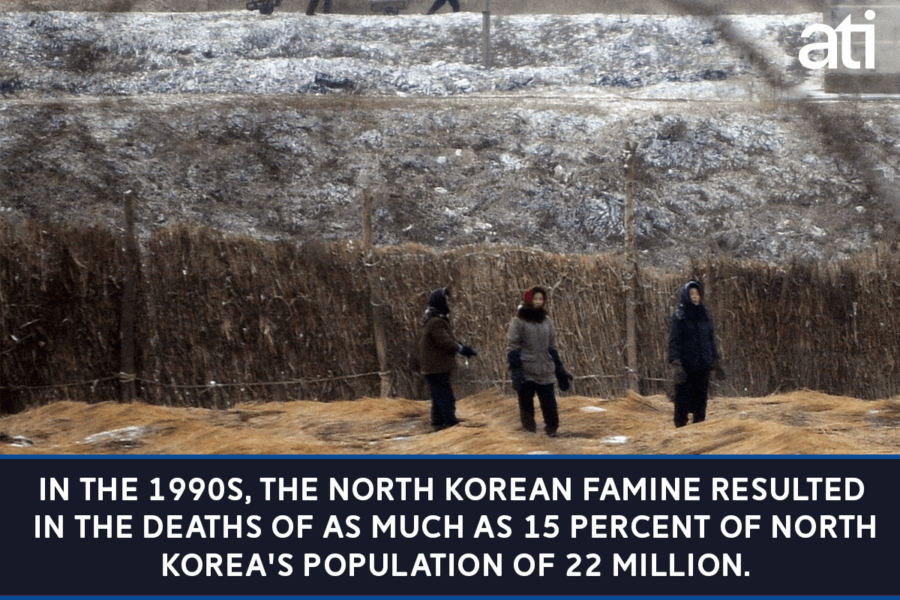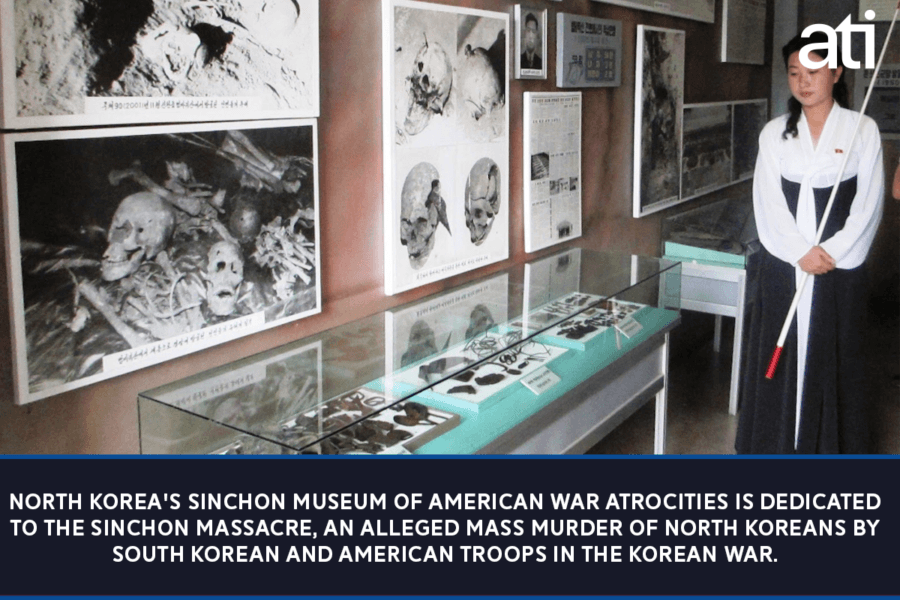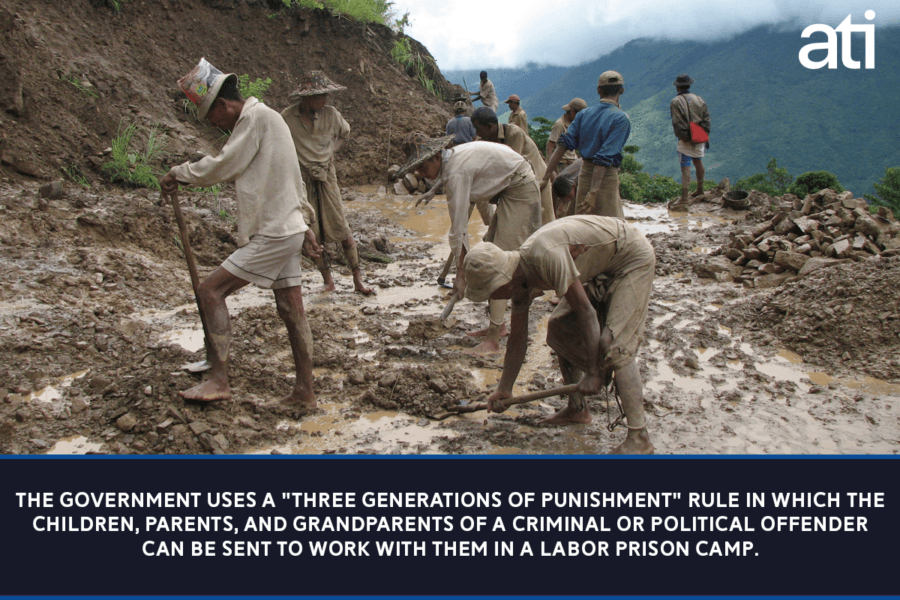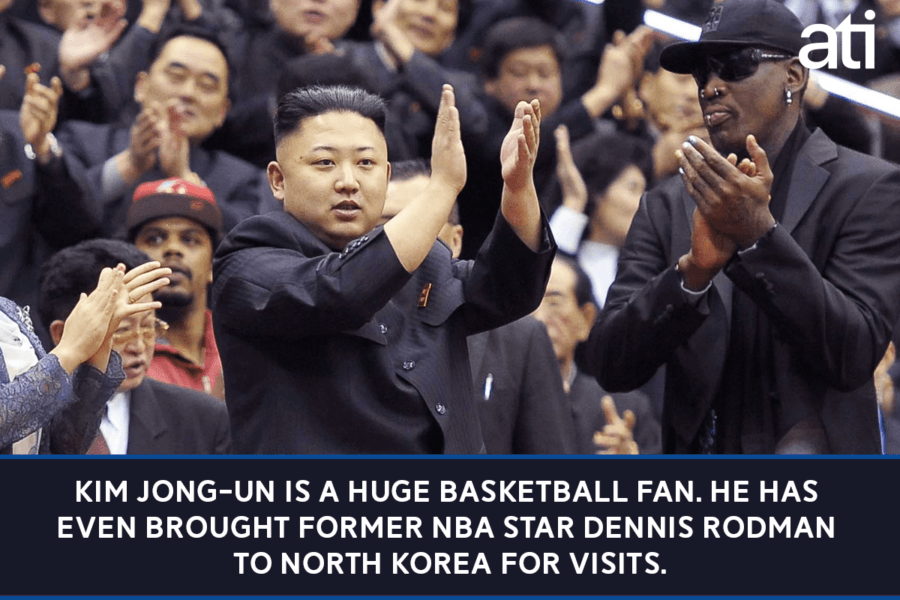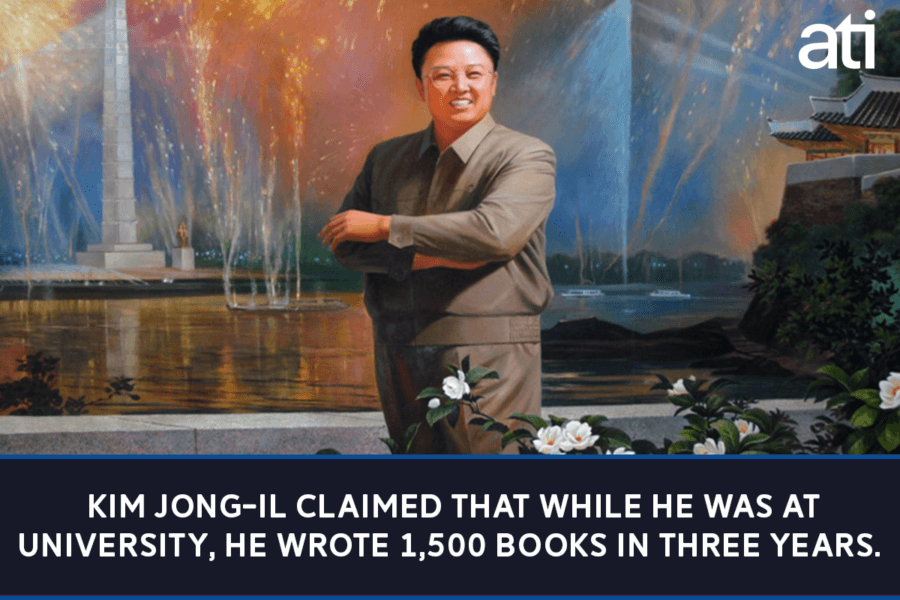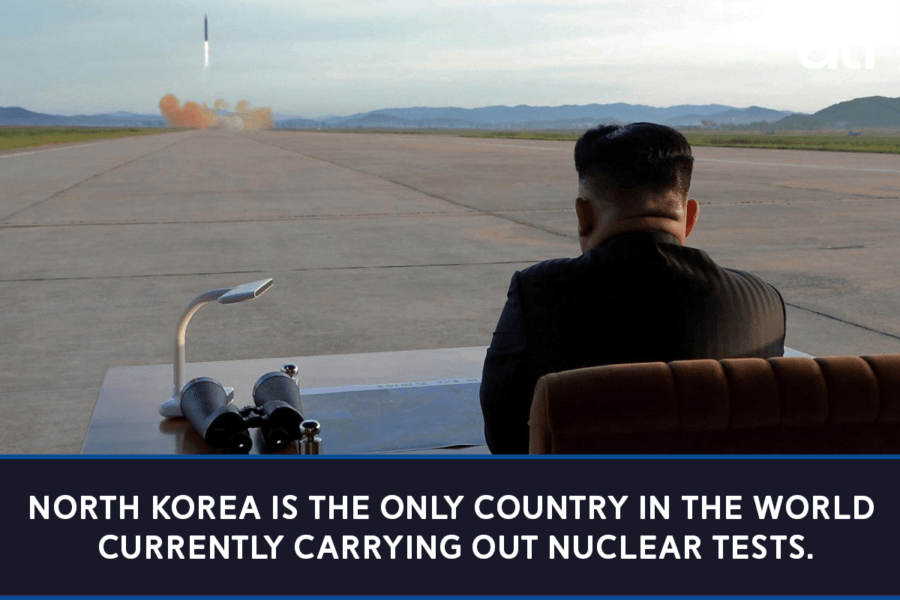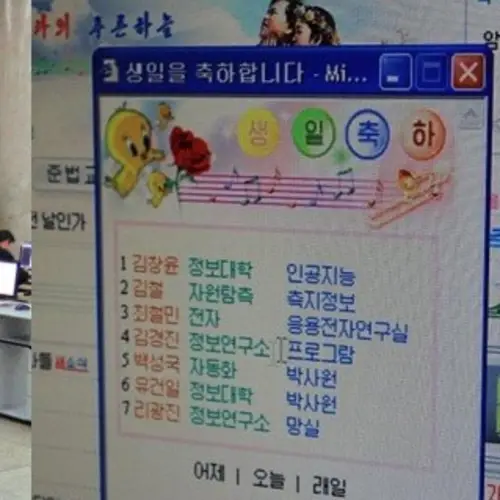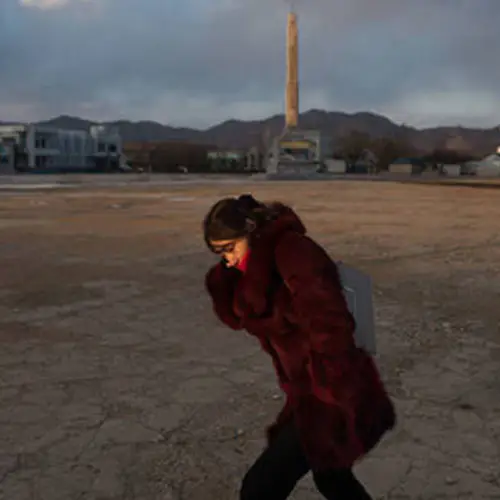1 of 47
Fewer than one in five North Koreans are estimated to have a mobile phone.
2 of 47
Due to international sanctions and resource shortfalls, North Korea sometimes uses human feces for fertilizer.
3 of 47
Because of generational malnutrition, North Koreans are, on average, between one and four inches shorter than South Koreans.
4 of 47
The CIA states that investigations in recent years suggest that the government makes substantial revenue by trafficking heroin and methamphetamine.
For more, read this report. 5 of 47
There are an estimated 200,000 political prisoners in North Korean work camps that human rights activists have likened to modern-day gulags.
6 of 47
North Koreans must have one of 15 approved haircuts. Unmarried women must have short hair while married women have more options.
7 of 47
North Koreans need permission from the government in order to purchase a computer.
8 of 47
Bill Gates' net worth is more than three times larger than North Korea's annual GDP, as of 2017.
9 of 47
Possessing a Bible, watching foreign movies, and distributing pornography can all be punishable by death in North Korea.
10 of 47
Fewer than one in three North Koreans has access to electricity.
For more North Korea facts, view the CIA factbook.
11 of 47
Kim Jong-il, a huge movie fan, once had a South Korean director and his movie star ex-wife kidnapped and brought to North Korea to make films for him.
12 of 47
One of those films, an extremely low-rent Godzilla knock-off, grew popular enough to gain distribution in Austria, where the director and star were able to successfully make their escape.
Next, read the full story of Pulgasari, the North Korean Godzilla knock-off. 13 of 47
Only 2.8 percent of all of North Korea's roads are paved.
For more North Korea facts, view the CIA factbook.
14 of 47
North Korea bases its calendar on Kim Il-sung's date of birth in April 1912. Thus, 2017 is the year 106.
15 of 47
Less than one in 1,000 North Koreans has access to the internet, which only includes a few dozen government-approved, heavily-restricted sites.
Next, see more rare glimpses of North Korea's internet. 16 of 47
The North Korean government created its own time zone, 30 minutes behind that of South Korea and Japan, even though both countries are actually in the same time zone as North Korea.
17 of 47
Kim Jong-un had his half-brother killed by a team of female agents using poison-laced pens in Kuala Lumpur's airport.
For more, read this report on the assassination. 18 of 47
North Korea has one of the lowest average incomes in the world at as little as $1,000 per year. South Koreans have an average yearly income of about $32,000.
19 of 47
About one in fourth North Koreans is unemployed.
For more North Korea facts, view the CIA factbook.
20 of 47
Basketball is extremely popular in North Korea, but they play with slightly different rules: Slam dunks are worth three points and field goals quadruple in the final three minutes of a game.
21 of 47
The North Korean government maintains a reportedly uninhabited propaganda city known as "Peace Village" right on the border with South Korea in hopes of presenting a good face to outsiders and encouraging defection from the South.
22 of 47
Kim Jong-il reportedly had a yearly cognac expenditure of $900,000, which is about 900 times greater than the average North Korean's annual income.
23 of 47
Kim Jong-il's embalmed body can be visited by North Koreans and tourists in a state mausoleum.
24 of 47
Kim Jong-un received surgery for fractured ankles in 2014, with reports indicating that it was due to his extreme weight gain and penchant for heeled boots.
25 of 47
Since the 1990s, North Korean personnel visiting the United Nations in New York City have amassed more than 1,000 parking tickets totaling $156,000 — and paid none of them.
Next, read more about North Korea's unpaid parking tickets. 26 of 47
North Korea was created in 1945 when the U.S. Army had two young officers quickly choose a dividing line between North and South. They had no preparation, consulted no experts, and used a National Geographic map to accomplish their task.
27 of 47
When one of the officers was asked about the partition after the fact, he admitted that, had he been better prepared, he almost certainly would have chosen a different dividing line.
28 of 47
Because of international sanctions and economic isolation, North Korea engages in illicit activities to generate money for the regime, including insurance fraud, counterfeit pharmaceuticals, human trafficking, arms sales, and drug smuggling.
29 of 47
Kim Jong-il has many amazing feats attributed to him by North Korean media such as rolling a perfect 300 the first time he bowled and making 11 holes-in-one the first time he golfed.
Next, read more about Kim Jong-il's alleged accomplishments. 30 of 47
North Korea's internet can only be navigated with the country's official browser, Naenara (which literally translates to "my country"), a modified version of Firefox that forces automatic updates (which can be used for government surveillance) upon all users.
31 of 47
North Korea has occasionally executed high-ranking officials using large anti-aircraft guns, virtually disintegrating their bodies.
32 of 47
The border between North and South Korea is the most militarized in the world. North Korea has 1.2 million active personnel in total while South Korea has 680,000.
33 of 47
As determined by the Corruption Perceptions Index 2016. North Korea is the third most corrupt nation on Earth.
For more North Korea facts, specifically related to matters of corruption, see the Corruption Perceptions Index. 34 of 47
Kim Il-sung, who died in 1994, is still the president of North Korea with the title of eternal president. His son, Kim Jong-il, who died in 2011, is still the general secretary of the communist party with the title of eternal general secretary.
35 of 47
Kim Jong-il claimed to have composed six operas in a two-year span.
36 of 47
According to leaks from Chinese diplomats, Kim Jong-un had plastic surgery to resemble his grandfather, Kim Il-sung.
37 of 47
Most estimates claim that North Korea has the fourth-largest active military force on Earth, despite ranking just 52nd in population.
38 of 47
Nuclear war was averted in 1969 after Henry Kissinger intervened in Richard Nixon's order to launch a retaliatory nuclear strike on North Korea for shooting down a U.S. spy plane.
39 of 47
North Korea has the world's largest stadium — Rungrado May Day Stadium — which has a capacity of 150,000 people.
40 of 47
North Korea spends as much as a quarter of its national budget on its military.
41 of 47
In the 1990s, the North Korean famine resulted in the deaths of as much as 15 percent of North Korea's population of 22 million.
42 of 47
North Korea's Sinchon Museum of American War Atrocities is dedicated to the Sinchon Massacre, an alleged mass murder of North Koreans by South Korean and American troops in the Korean War.
Next, see some of the most haunting Korean War photos ever taken. 43 of 47
The government uses a "three generations of punishment" rule in which the children, parents, and grandparents of a criminal or political offender can be sent to work with them in a labor prison camp.
44 of 47
Kim Jong-un is a huge basketball fan. He has even brought former NBA star Dennis Rodman to North Korea for visits.
45 of 47
Kim Jong-il claimed that while he was at university, he wrote 1,500 books in three years.
46 of 47
North Korea is the only country in the world currently carrying out nuclear tests.
47 of 47
Like this gallery?
Share it:
